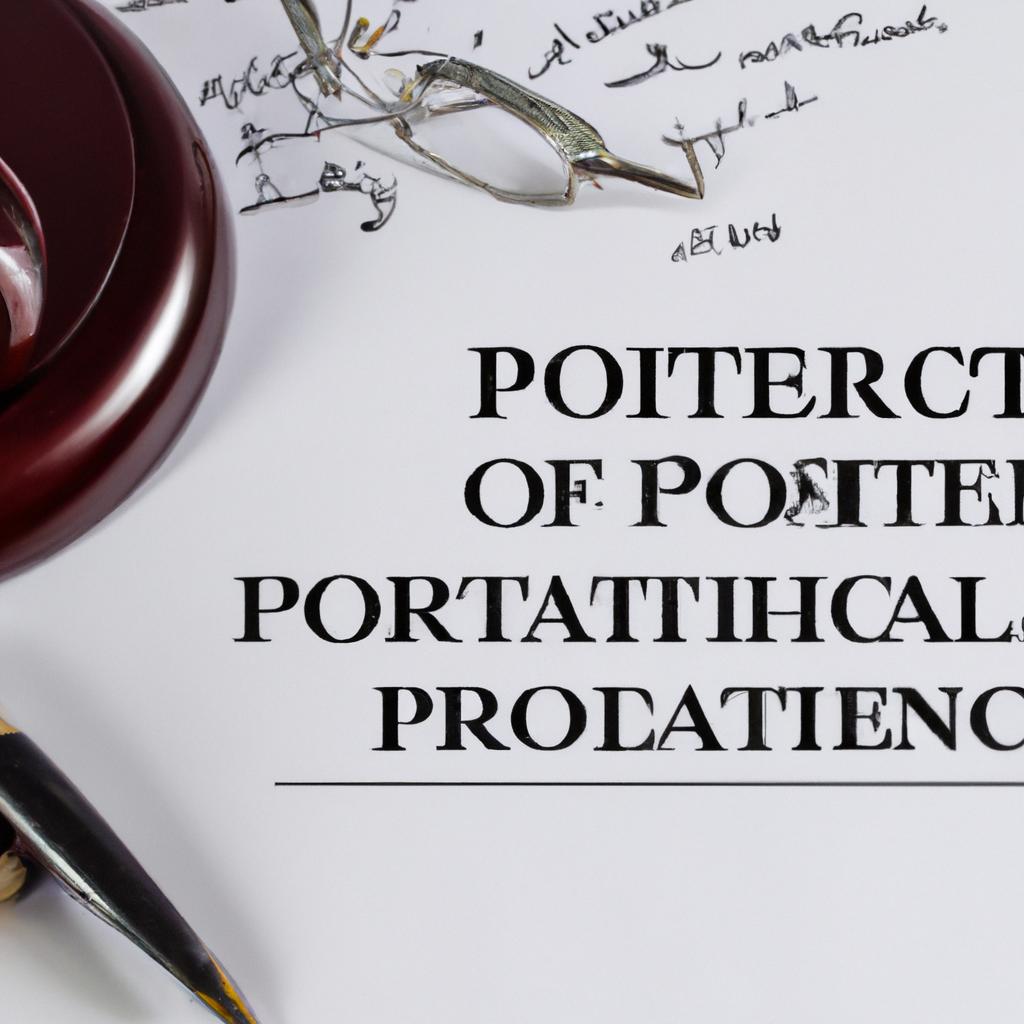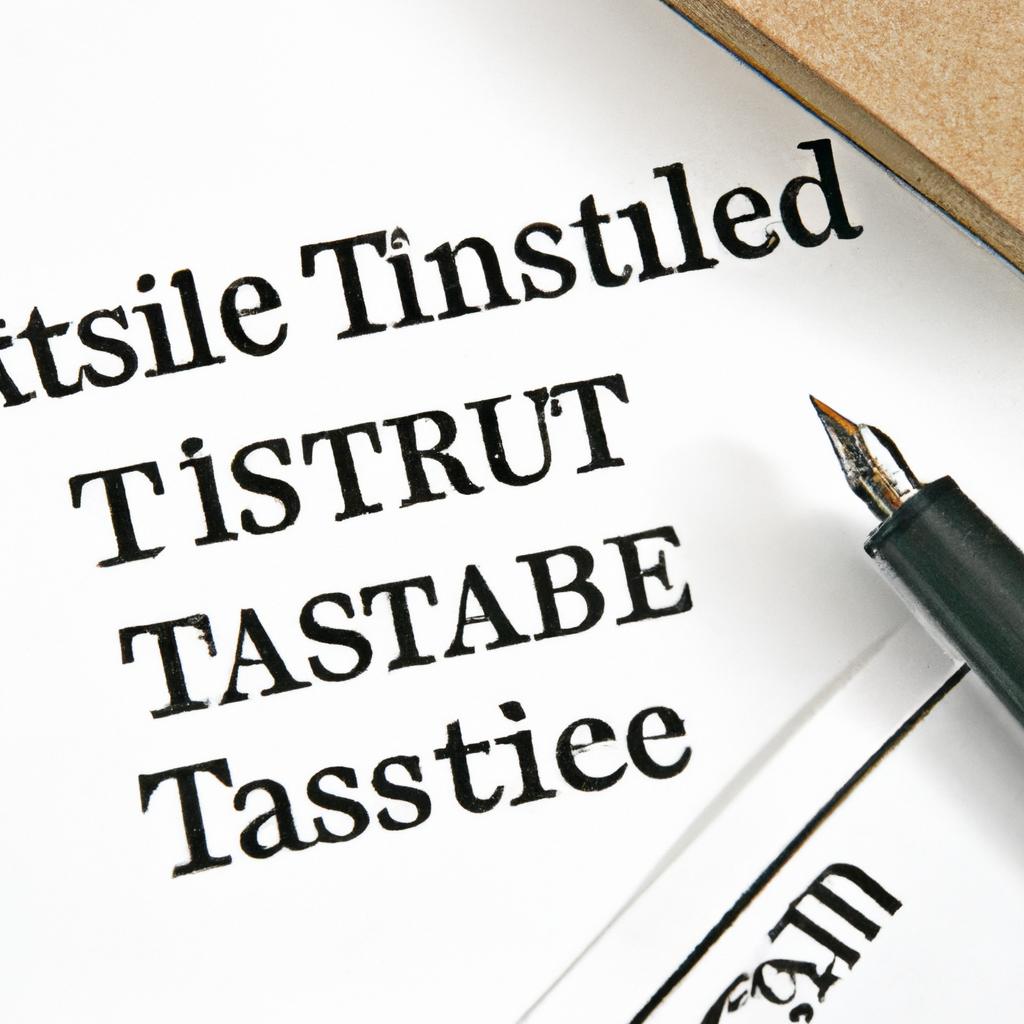Probate – a word that strikes fear and confusion into the hearts of many. The process of probate can be time-consuming, costly, and public, often leading individuals to wonder: How can I avoid probate? As experienced estate planning attorneys at Morgan Legal Group in New York City, we understand the complexities of probate and the desire to bypass it. In this article, we will explore strategies and techniques to help you navigate the probate process with ease and efficiency. Whether you’re looking to protect your assets, maintain privacy, or simply streamline the transfer of your estate, we are here to guide you through the maze of probate avoidance.
Understanding the Probate Process and Its Implications
When it comes to avoiding probate, there are several strategies that individuals can employ to ensure that their assets are distributed efficiently and effectively without the need for court intervention. One popular method is to establish a revocable living trust, which allows assets to pass directly to beneficiaries without going through probate. By transferring assets into the trust during one’s lifetime, individuals can maintain control over their assets while avoiding the delays and costs associated with probate.
Another way to avoid probate is to designate beneficiaries on assets such as retirement accounts, life insurance policies, and bank accounts. By completing beneficiary designations, individuals can ensure that these assets pass directly to the intended beneficiaries outside of the probate process. Additionally, joint ownership with rights of survivorship can be used to transfer assets to co-owners upon the death of one party. Consulting with an experienced estate planning attorney can help individuals navigate the complex legal requirements of avoiding probate and ensure that their wishes are carried out effectively.

Strategies for Minimizing Probate Costs and Time
One effective strategy for avoiding probate is to establish a revocable living trust. By transferring assets to a trust during your lifetime, those assets will not need to go through the probate process upon your death. This can help save both time and money for your loved ones. Additionally, naming beneficiaries on accounts such as retirement funds and life insurance policies can also help bypass probate.
Another way to minimize probate costs and time is to make sure your estate planning documents are up to date. This includes regularly reviewing and updating your Will, trust, and beneficiary designations. By ensuring that your documents accurately reflect your wishes, you can help avoid potential conflicts and costly legal battles in probate court. Additionally, working with an experienced estate planning attorney can help you navigate the probate process more efficiently. Consult with our team at Morgan Legal Group in New York City to discuss your estate planning needs and develop a personalized strategy to avoid probate.
| Pros | Cons |
|---|---|
| Avoids Probate Costs | Requires upfront legal costs |
| Privacy for Your Estate | Requires ongoing management |
| Faster Distribution to Beneficiaries | Potential complications if not managed properly |

Utilizing Trusts and Estate Planning Tools to sidestep Probate
When it comes to estate planning, utilizing trusts and other legal tools can help individuals effectively sidestep the probate process and ensure a smoother transition of assets to beneficiaries. Trusts, such as revocable living trusts or irrevocable trusts, can be powerful tools in avoiding probate as they allow assets to pass directly to beneficiaries without the need for court intervention.
Additionally, other estate planning tools like payable-on-death designations and joint tenancy arrangements can also help avoid probate. By strategically using these tools in combination with trusts, individuals can ensure that their assets are transferred efficiently and according to their wishes, while minimizing the time and costs associated with the probate process.

Seeking Legal Guidance to Navigate the Probate Avoidance Process
When it comes to navigating the probate avoidance process, seeking legal guidance is crucial to ensure a smooth and efficient experience. With the complexity of estate planning laws and regulations, having a knowledgeable attorney by your side can help you make informed decisions and avoid potential pitfalls along the way.
At Morgan Legal Group, our team of experienced attorneys specializes in estate planning, probate, elder law, Wills, and trusts. We understand the importance of properly planning for the future and are dedicated to helping our clients navigate the probate avoidance process with ease. Whether you are looking to establish a trust, update your Will, or explore other estate planning options, our team is here to provide comprehensive legal guidance tailored to your specific needs and goals.
Q&A
Q: What is probate and why should I avoid it?
A: Probate is the legal process of distributing a deceased person’s assets and settling their debts. It can be time-consuming, costly, and open to public scrutiny.
Q: How can I avoid probate?
A: There are several ways to avoid probate, such as creating a revocable living trust, designating beneficiaries on your accounts and assets, joint ownership, and using payable-on-death designations.
Q: What is a revocable living trust?
A: A revocable living trust is a legal document that allows you to transfer ownership of your assets to the trust while you are alive. This can help avoid probate because the trust technically owns the assets, not you.
Q: Can I avoid probate by designating beneficiaries on my accounts?
A: Yes, by designating beneficiaries on your bank accounts, retirement accounts, and life insurance policies, you can bypass probate and ensure that your assets go directly to your chosen beneficiaries.
Q: Is joint ownership a good way to avoid probate?
A: Joint ownership, such as joint tenancy with right of survivorship, can be a simple way to avoid probate for certain assets like real estate and bank accounts. However, it may not be the best option for everyone as it can lead to potential complications.
Q: How do payable-on-death designations help avoid probate?
A: By designating beneficiaries on your accounts as payable-on-death, you can ensure that the assets in those accounts pass directly to the designated beneficiaries upon your death, without going through probate.
Future Outlook
In conclusion, avoiding probate can save time, money, and stress for both you and your loved ones. By utilizing tools such as living trusts, beneficiary designations, and joint ownership, you can ensure that your assets are transferred smoothly and efficiently after your passing. Remember to consult with a legal professional to determine the best strategies for your unique situation. With careful planning, you can create a legacy that will be cherished for generations to come. Good luck on your estate planning journey!
 If you’re like most people, you’ve probably heard the term “probate” thrown around, but do you really know what it means? Probate is the process of legally proving the validity of a will after someone passes away. It can also involve distributing their assets and paying off any remaining debts. However, probate is known to be time-consuming, expensive and can cause unnecessary stress for grieving loved ones. So how do you avoid probate? In this article, we’ll discuss the options available to help you avoid probate and provide you with the necessary information to make an informed decision.
If you’re like most people, you’ve probably heard the term “probate” thrown around, but do you really know what it means? Probate is the process of legally proving the validity of a will after someone passes away. It can also involve distributing their assets and paying off any remaining debts. However, probate is known to be time-consuming, expensive and can cause unnecessary stress for grieving loved ones. So how do you avoid probate? In this article, we’ll discuss the options available to help you avoid probate and provide you with the necessary information to make an informed decision.
What Are the Risks of Probate?
Before we dive into the ways to avoid probate, let’s first understand why it should be avoided in the first place. The probate process can be lengthy, taking anywhere from six months to several years. This can cause a significant delay in distributing assets, leaving surviving family members to struggle financially. Moreover, probate is also costly as the court fees and legal expenses can add up quickly. These fees are typically paid for by the estate, reducing the estate’s overall value.
Another risk of probate is the potential for family disputes and conflicts. During probate, the assets of the deceased are publicly listed and can be contested by any interested party. This can lead to lengthy and costly court battles and strain relationships among family members.
How to Avoid Probate?
1) Create a Revocable Living Trust
Key phrase: Revocable Living Trust
One of the most effective ways to avoid probate entirely is by creating a revocable living trust. This is a legal entity that holds your assets and can be managed by someone you choose, called a trustee. The trustee’s role is to manage the trust’s assets on your behalf, ensuring they are distributed according to your instructions upon your death. Unlike a will, a revocable living trust isn’t subject to probate, meaning it allows your assets to be distributed promptly and privately.
Benefits:
– Avoids probate entirely
– Provides greater control over your assets
– Allows for a smoother and faster distribution of assets
– Can include provisions for incapacity planning
Case Study:
John and Sarah, a married couple, set up a revocable living trust and transferred their assets into it. After John’s passing, his assets were immediately passed on to Sarah without going through probate. This avoided any delays and additional costs, allowing Sarah to have full control over their assets.
2) Designate Beneficiaries
Key phrase: Designate Beneficiaries
Another way to avoid probate is by designating beneficiaries for your assets. Assets such as life insurance policies, retirement accounts, and even bank accounts allow you to name a beneficiary who will receive the assets upon your death. This bypasses the probate process, and these assets are transferred directly to the designated beneficiary.
Benefits:
– Avoids probate for designated assets
– Provides faster distribution of assets
– Can name multiple beneficiaries and specify how the assets are divided among them
Case Study:
Michelle named her two children as beneficiaries of her retirement account. Upon her passing, her children received the account’s balance without going through probate. This allowed her children to receive their inheritance promptly and privately.
3) Joint Ownership
Key phrase: Joint Ownership
Another way to avoid probate is by holding assets jointly with someone. This means that both parties own the asset, and upon the death of one, the other automatically becomes the sole owner. One common example of joint ownership is joint tenancy with right of survivorship. This is often used for real estate, where two or more people own property together.
Benefits:
– Avoids probate for jointly owned assets
– Provides faster distribution of assets
– No need for a separate will or trust
Case Study:
Robert and Lisa bought a house together and held it in joint tenancy with the right of survivorship. When Robert passed away, Lisa automatically became the full owner of the property, avoiding probate.
4) Gifts
Key phrase: Gifts
You can avoid probate by gifting your assets while you are still alive. This means transferring assets to your loved ones while you are alive, allowing them to avoid any probate fees or delays once you pass away. However, it’s essential to keep in mind that there are gift tax limitations, and not all assets can be gifted.
Benefits:
– Avoids probate entirely
– Allows for a faster transfer of assets
– Can be used for tax planning purposes
Case Study:
Thomas gifted his antique car to his son before passing away. This allowed his son to receive the car without going through probate, saving him time and money.
Conclusion:
Probate is a lengthy, expensive and often emotionally draining process. However, there are ways to avoid it entirely or minimize its impact on your estate. By utilizing options such as creating a revocable living trust, designating beneficiaries, holding assets jointly, or gifting assets while you are still alive, you can ensure your assets are distributed promptly and privately. These options provide you with greater control over your assets and can help reduce the stress and financial burden on your loved ones during a difficult time. Consult with a trusted attorney to determine which option is best for you and your estate.

